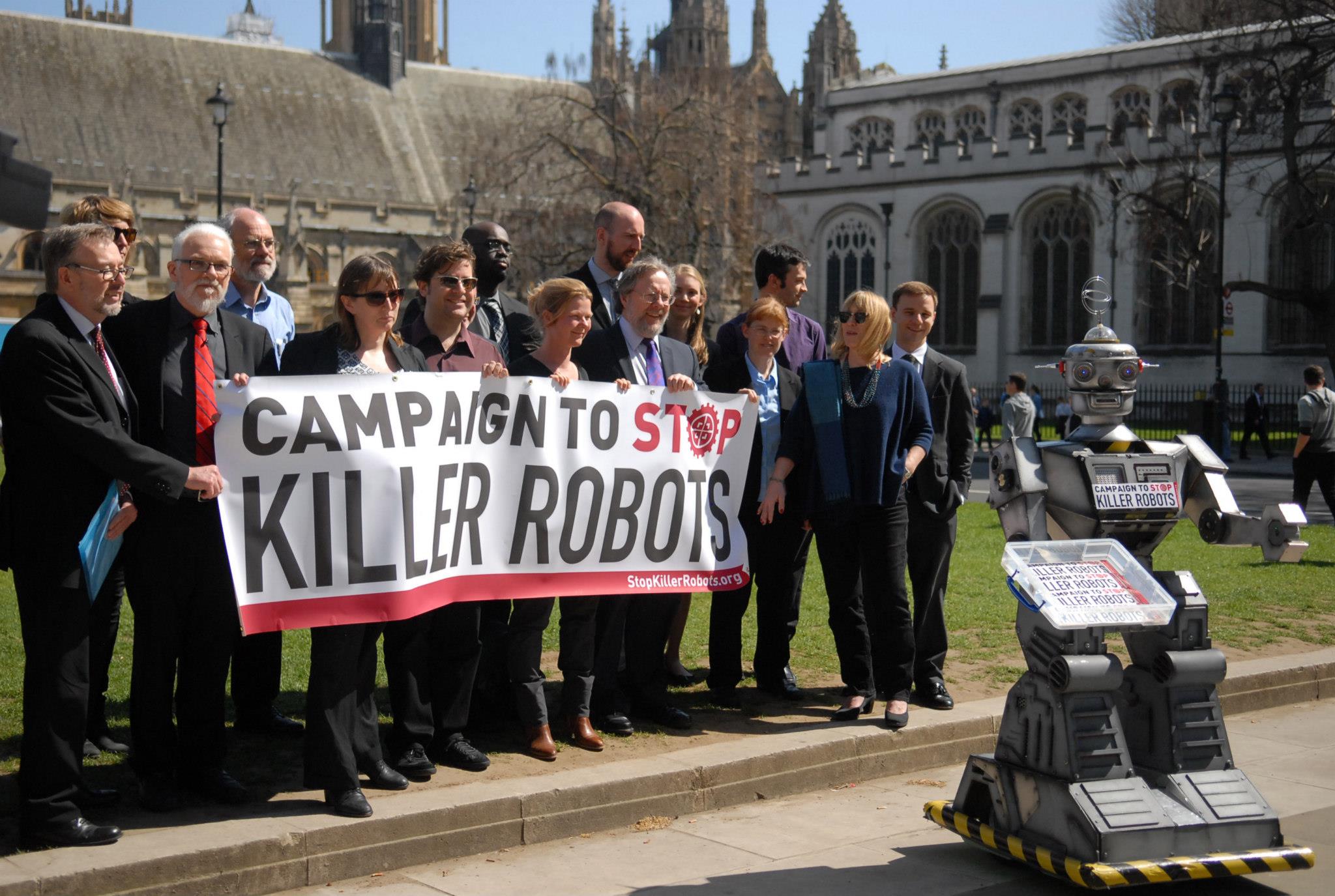
Photo Credit: Stop Killer Robots
Following calls from the government of New Zealand for the adoption of international laws to prohibit and limit autonomous weapons systems, the United States has opposed such regulations.
Speaking at a meeting in Geneva, US official Josh Dorosin maintained that America saw "the best way to make progress ... would be through the development of a non-binding code of conduct”.
Autonomous weapons systems would enable military equipment which could deploy lethal force without a human overseeing the process. A report by Human Rights Watch and Harvard Law School’s International Human Rights Clinic describes such weaponry as "grave threats" and warns that it presents "the prospect of losing meaningful human control over the use of force”.
The report emphasises the need for "meaningful human control over the use of force" and calls for a "prohibition on the development, production, and use of weapons systems that by their nature select and engage targets without meaningful human control".
Statements of support
New Zealand's Minister for Disarmament and Arms Control, Phil Twyford, has spoken out against such systems describing them as “abhorrent and inconsistent with New Zealand’s interests and values.”
His statements have been supported by UN chief, António Guterres, who in November 2018 called for a ban but as of yet no countries have agreed on the need for regulations. The US and India have been particularly critical of the idea and voiced their opposition in a debate on Thursday.
Clare Conboy of the Campaign to Stop Killer Robots maintained that:
“States have a historic opportunity to ensure meaningful human control over the use of force and prevent a world in which machines make life and death decisions”.
Her statements have been supported by former British Foreign Minister, William Hague, who in an op-ed for the Times, called upon the British government to"join in the search for such solutions".
Pathways forwards
Human Rights Watch has criticised the pursuing discussions through the Convention on Conventional Weapons (CCW) noting "eight years of inconclusive talks". Instead, they have called for the negotiation and adoption of a "new international treaty through a stand-alone process, as was the case for the treaties banning antipersonnel landmines and cluster munitions".
Another suggestion presented by the organisation is to go through the United Nations General Assembly, where the Treaty on the Prohibition of Nuclear Weapons was negotiated.
Read more here
